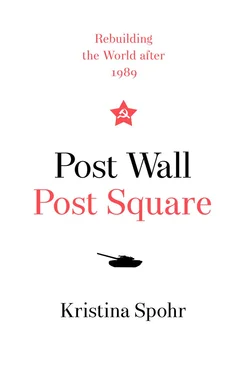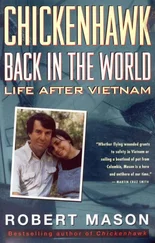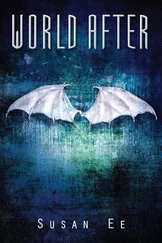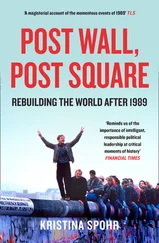In Reagan’s second term, when Bush started to plan his own campaign, such loyalty was sometimes held against him – as evidence of his perpetual readiness to play second fiddle. [35]And when pressed to articulate his own agenda, he reportedly exclaimed ‘Oh, the vision thing!’ – a phrase often cited against him. [36]Did Bush have the backbone and self-confidence to take that final big step into the Oval Office? [37]He also lacked Reagan’s carefully crafted homespun eloquence and, although his speech accepting the Republican nomination in July 1988 won praise, it also contained the pledge ‘Read my lips: no new taxes.’ Bush slipped this in to appease the Republican right, to whom he looked unacceptably centrist compared with Reagan. In due course those words would come back to haunt him, but at the time they typified the thrust of his bid for the presidency, which concentrated on economic and social issues, rather than foreign affairs. [38]During a highly personalised, at times truly ugly, campaign the Republicans lambasted their Democratic opponent Michael Dukakis, former governor of Massachusetts, as an effete Harvard liberal who was weak on crime and profligate on spending. On 8 November 1988, number two finally became number one, chalking up a landslide victory by winning forty of the fifty states and 80% of the electoral college vote. [39]
Many people assumed that Bush would largely continue the policies of the outgoing administration, both at home and abroad, but the new president was determined not to be the stand-in for a Reagan third term. In fact the two men had never been particularly close and Bush privately held Reagan in fairly low esteem, as someone who was ‘kind of foolish and simplistic on many issues’. So the handover was really a ‘takeover’, albeit friendly. And, contrary to impressions during the campaign, foreign policy would not take a back seat. What’s more, in diplomacy Bush had a different style and agenda from his predecessor. It was here that the ‘real’ George Bush would step out of Reagan’s shadow. [40]
This fresh approach to foreign affairs was mapped out during the interregnum from November to January. Bush’s two key advisers were James A. Baker III, the new Secretary of State, and Brent Scowcroft, who became national security adviser. Their close relations with the president created a kind of constructive tension, as they acted out different roles in Bush’s diplomacy. Both men agreed that Washington had a strong hand to play in dealing with the Kremlin, but they differed significantly on how to use it. [41]
Baker was a long-time Texan sidekick (born in Houston in 1930, he was six years younger than Bush). The two had been close friends for over thirty years: Baker was almost like a younger brother. He had been a US Marine in his youth, then a successful attorney, before becoming a Washington insider. He went on to organise the election campaigns of Gerald Ford in 1976 and Ronald Reagan in 1984, and served right through Reagan’s two terms as White House chief of staff and then Treasury Secretary. In the view of Dennis Ross, a Washington veteran who was appointed director of the State Department policy planning staff, Baker was a superb instinctive negotiator, with a natural flair for dealing with people and a rare talent for identifying priorities. As regards the Soviet Union, Baker favoured continued and intensive diplomatic engagement. He wanted to test Gorbachev’s sincerity and encourage the Soviet leader into further reforms at home and abroad. [42]
Scowcroft served as the focus for a second group of advisers who were much more sceptical of Gorbachev and his plans, fearing that they might be intended to revitalise Soviet power. Moscow, Scowcroft warned, might ‘smother the West with kindness’ and thus weaken NATO’s resolve and cohesion. For this reason he firmly opposed an early summit meeting between Bush and Gorbachev in 1989, lest it would simply feed into Soviet propaganda. As he reflected later: unless there were substantive accomplishments, such as in arms control, the Soviets would be able to capitalise on the one outcome left – the good feelings generated by the meeting. They would use the resulting euphoria to undermine Western resolve, and a sense of complacency would encourage some to believe the United States could relax its vigilance. The Soviets in general and Gorbachev in particular were masters at creating these enervatingly cosy atmospheres. Gorbachev’s UN speech had established, largely with rhetorical flourish, a mood of heady optimism. He could exploit an early meeting with a new president as evidence to declare the Cold War over without providing substantive actions from a ‘new’ Soviet Union. [43]
Scowcroft and Bush were almost the same age: they had both been airmen but Bush’s service was confined to the Pacific War whereas Scowcroft was a career officer in the post-war US Air Force from 1947 until he joined the Nixon White House in 1972, before becoming Ford’s national security adviser (1975–7). It was during the Ford years that he became closely acquainted with Bush, who was US envoy to China and then director of the CIA. They shared the same world view, one defined by the Second World War, the Cold War and Vietnam. Both believed in US leadership in the world, the centrality of the transatlantic alliance, and the necessity of using force decisively if and when it had to be employed. And both believed in the efficacy of personal diplomacy and the paramount importance of good intelligence. Bush trusted Scowcroft completely. He called him ‘the closest friend in all things’ – on the golf course as much as in the Oval Office. [44]Scowcroft saw his role as the president’s personal adviser and also an honest broker, being free – unlike Baker – from having to represent the interests of a particular government department. And as national security adviser, he was also the nodal point of Bush’s security and foreign policy. Now in the post for a second time, Scowcroft developed his own ‘system’, a highly effective decision-making process. Its hallmarks were regular consultation among the NSC staff, and ruthless discouragement of leaks, with everything channelled through Scowcroft to the president. But, unlike the NSC under Henry Kissinger or Zbigniew Brzezinski in the 1970s, the atmosphere was essentially collegial rather than conspiratorial. And Scowcroft and Baker, despite their inevitable frictions, managed to work productively together. [45]
Taken as a whole, therefore, the Bush administration possessed great expertise in foreign policy, and the president himself cared deeply about these issues. He enjoyed reading briefing papers and memos and, unlike his three immediate predecessors – Ford, Carter and Reagan – brought to the job extensive experience in international affairs. In addition to the posts he held in the 1970s, he had served eight years as vice president, during which he got to know many foreign officials and most heads of government. In terms of personality, Bush was unassuming and cautious but also highly ambitious and self-assured. Though he may not have been a strategic visionary, his statecraft was guided by a clear set of basic convictions and goals. A stable world order needed leadership and, in spite of much pessimism in the 1980s, Bush had no doubt that the United States alone could provide it; he did not see America as being in ‘decline’.
To be sure, in some American circles the narrative of ‘decline’ combined with gloomy talk about a dawning ‘Pacific century’ (with Japan in the vanguard due to its prodigious economic growth) and a potential ‘Fortress Europe’ (an ever more closely economically and politically integrated and protectionist European Community). But the Bush White House focused on what it perceived as the rising popularity and spread of America’s liberal values across the world and on pushing for the creation of a new, truly global trading system (led by the United States) – one that would replace the dying 1947 GATT agreement and include the Soviet Union, China and the Third World.
Читать дальше












